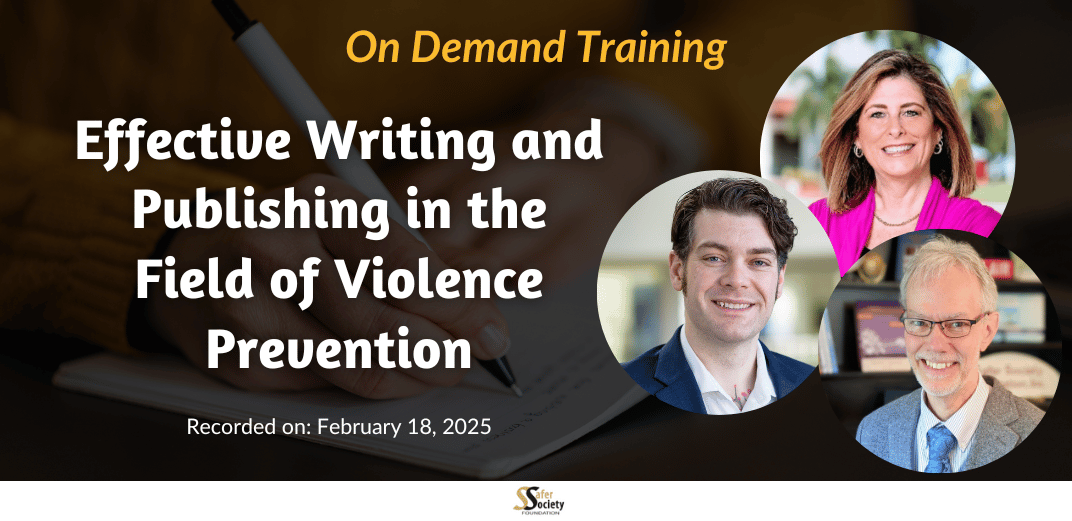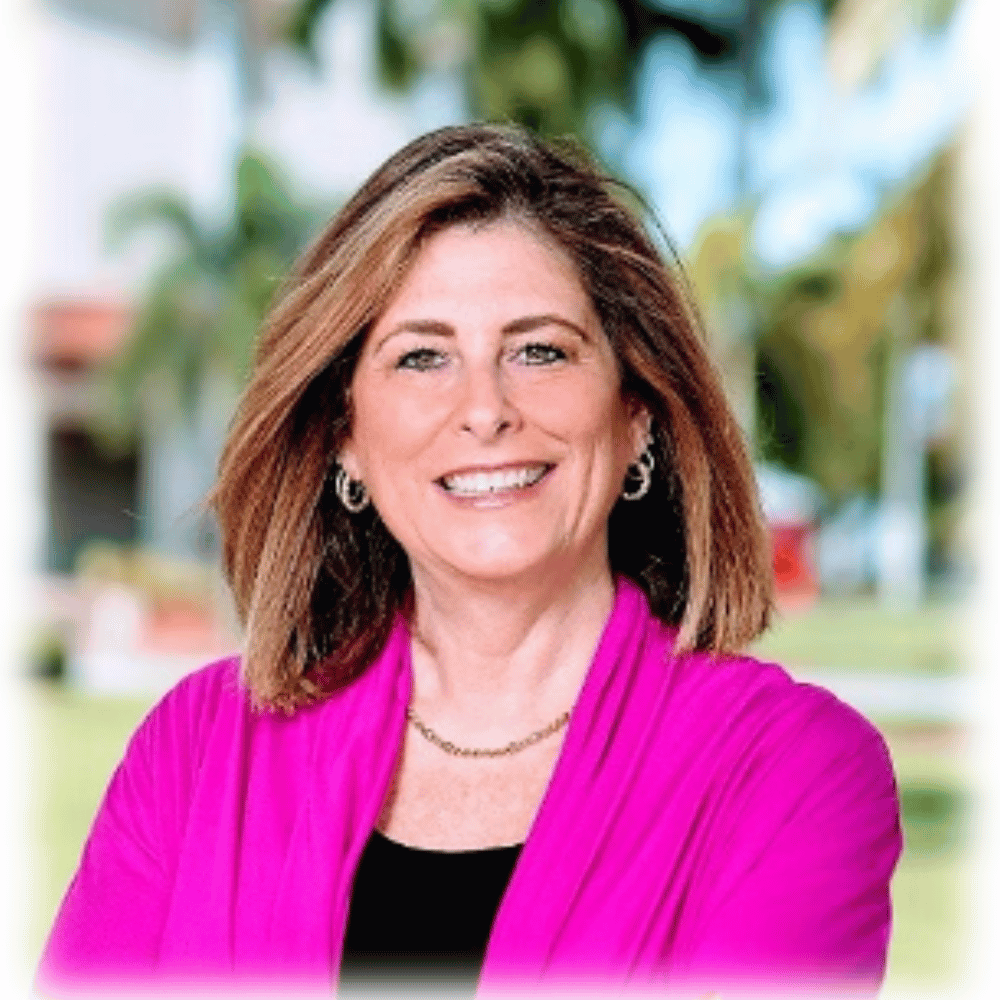
Effective Writing and Publishing in the Field of Violence Prevention
Already purchased an On Demand training?
Click here to access your Safer Society On-Demand Training Center account.
In the field of violence prevention, effective written communication is essential for driving meaningful change. Presenters David S. Prescott, LICSW, Kelly Socia, PhD, and Jill Levenson, PhD, LCSW, designed this training to provide professionals from diverse backgrounds with the skills necessary for communicating their ideas clearly and impactfully and the strategies necessary for publishing their work.
 The workshop opens with an exploration of key rationales and strategies for successful writing and publishing, addressing fundamental questions such as:
The workshop opens with an exploration of key rationales and strategies for successful writing and publishing, addressing fundamental questions such as:
- Why publish? Understanding the importance of sharing knowledge.
- What to publish? Identifying your valuable contributions to the field.
- How to publish? Developing effective writing techniques and submission strategies.
- Where to publish? Selecting appropriate outlets for your work.
The training offers an exploration of professional writing techniques, addressing key challenges faced by aspiring authors and content creators. Participants discover innovative techniques for integrating writing into their demanding schedules, along with practical methods for creating high quality written work and identifying potential collaborators who can enhance the work. The presenters help participants develop their expertise in niche areas and position themselves as authorities on specific topics.
During the training, the presenters also highlight the value of different genres of scholarly products, encouraging participants to appreciate how various formats can serve distinct purposes. Additionally, participants are guided in identifying suitable submission outlets for their work, ensuring that their contributions reach the right audiences.
Lastly, participants engage in a discussion about the various types of scholarly publications along with an examination of the pros and cons associated with each type, such as:
- Handbooks: Comprehensive guides that provide detailed information on broad professional areas.
- Policy Briefs: Concise documents that summarize research findings and offer recommendations for policymakers.
- Research Notes and Articles: Shorter pieces that present preliminary findings or insights from ongoing research.
- Book Chapters: Explorations of specific subjects that are published within larger works, contributing to a broader narrative.
- Topical Books: Works that provide in-depth analyses of specific topics and related research findings and perspectives.
By equipping professionals with these essential tools, this training aims to enhance their ability to communicate effectively about violence prevention, fostering a greater impact on community safety and wellbeing.
1) Evaluate and select optimal outlets for their publications that align with their research and practice ideas.
2) Demonstrate proficiency in crafting clear, objective, and unbiased written content.
3) Explain effective strategies for collaborating with editors and publishers throughout the publication process.
4) Analyze audience needs and tailor submissions to maximize their relevance and impact.
Audience
This training is designed for professionals from diverse backgrounds who are committed to violence prevention and seek to enhance their knowledge and skills in effectively writing about and publishing their research ideas.
Content Level
Who's Presenting

Jill S. Levenson, Ph.D., LCSW
Dr. Jill Levenson, PhD, LCSW, is a renowned expert in Trauma-informed Care and a Professor at Barry University in Miami. She is a certified TIC instructor, specializing in applying TIC in various settings. Dr. Levenson’s extensive work includes over 120 articles, 25 chapters, and 6 books. Her research has been funded by prestigious organizations like NIJ, NSVRC, and CDC. Recognized for her contributions, she has received awards such as the Social Worker of the Year Award from NASW-FL and a Lifetime Achievement Award from ATSA. Dr. Levenson is also a member of the American Academy of Social Work and Social Welfare. She has conducted trainings globally and advocates for social justice and trauma-informed care.

Kelly M. Socia, PhD
Dr. Socia is a Professor in the School of Criminology and Justice Studies and a Fellow for the Center for Public Opinion at the University of Massachusetts, Lowell. His research has been published in journals such as Criminology & Public Policy, Crime & Delinquency, Sex Abuse, and Justice Quarterly. He has experience consulting on court cases involving the housing impacts of sex offender residency restrictions. His research interests include the sex offender registry and associated public policies, reentry and recidivism, public opinion and policy-making, and spatial analyses. He received his Ph.D. in Criminal Justice from the School of Criminal Justice at the University at Albany, State University of New York, in 2011.

David Prescott, LICSW, ATSA-F
A mental health practitioner of 40 years, David Prescott is the Director of the Safer Society Continuing Education Center. He is the author and editor of 25 books in the areas of understanding and improving services to at-risk clients. He is best known for his work in the areas of understanding, assessing, and treating sexual violence and trauma. Mr. Prescott is the recipient of the 2014 Distinguished Contribution award from the Association for the Treatment and Prevention of Sexual Abuse (ATSA), the 2018 recipient of the National Adolescent Perpetration Network’s C. Henry Kempe Lifetime Achievement award, and the 2022 recipient of the Fay Honey Knopp Award from the New York State Alliance for the Prevention of Sexual Abuse and New York State ATSA. He also served as ATSA President in 2008-09. Mr. Prescott currently trains and lectures around the world. His published work has been translated into Japanese, Korean, German, French, Polish, and Southern Tutchone. He has served on the editorial boards of four scholarly journals.
